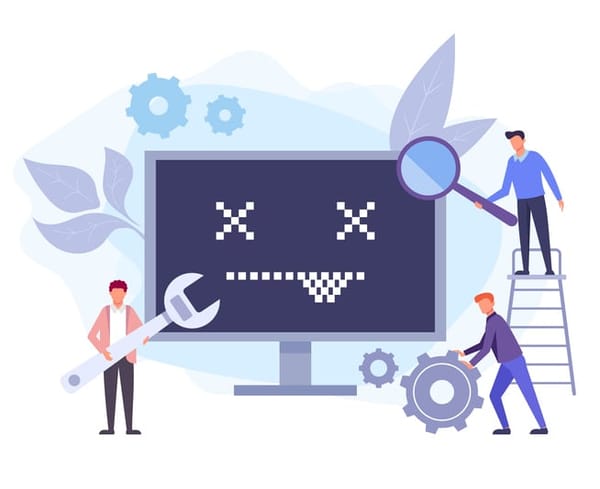
Want to know how much website downtime costs, and the impact it can have on your business?
Find out everything you need to know in our new uptime monitoring whitepaper 2021







Over the past 12 months, there seems to have been a greater awareness that companies can no longer put profit above everything else. Businesses cannot simply push profit margins and have unethical, money-making mentalities that they could have got away with in the past.
As consumers, as employees, as human beings, it seems we’re becoming more aware, more knowledgeable, and more vocal in demanding change on equality (gender, diversity, and race – particularly with the Black Lives Matter movement in 2020), as well as becoming more environmentally conscious. Whether this is due to having more insight into how environmentally unfriendly our habits have become, like flying on holiday without thought for the carbon emissions for instance, or we have simply just decided to start thinking about the greater result of our actions, awareness of ‘big news’ issues like global warming have become a huge part of our lives.
Even the bastions of capitalism, Blackrock – the world’s largest fund manager with $7tn of assets under its management, is trying to position itself as a leader of “sustainable”, “ethical”, “green” investing. In January this year, their CEO Larry Fink said of climate change that “climate change represented a risk to markets unlike any previous crisis” and that “their investment conviction is that sustainability- and climate-integrated portfolios can provide better risk-adjusted returns to investors.” In other words, it makes financial sense to invest in companies that are ethical, and think about climate change.
But this raises a couple of issues. Firstly, are companies that say they’re investing in the future of our environment actually doing that? It’s not just issues around “green-washing”, but many companies argue that investment into projects that help them deal with the effects of climate change – i.e. how it impacts them rather than addressing the cause – are part of the “social responsible” approach to our climate emergency.
Already around 3% of global electricity supply, and around 2% of total greenhouse gas emissions, are produced by data centres; around the same as the aviation industry. By 2040 that figure is expected to have increased to over 15%. Scientists are already warning that we have to hit zero carbon emissions worldwide by this point in time.
Are companies who invest money in building flood barriers around their data centre and taking other steps to protect from flooding caused by rising sea levels extreme weather events, investing in the “green” project?
You’d think the answer was a straightforward no. But you’d be wrong. Companies such as Carlyle, owners of oil companies like Clearly Petroleum, who have done similar works to protect their oil projects, claim these are green investments.
How can this be right? What they’re doing is simply business as usual. It does nothing to address the issue of why these flood defences are needed in the first place, yet alone address the issue of pumping more carbon emissions into the atmosphere. Green investment only really has meaning if its funding activities would not otherwise happen.
But secondly, and just as importantly, is the concept of ethical decisions leading to better financial performance the wrong way to look at this? Do we want to make decisions that are more environmentally sound because they’re better for our company profits, or because it is the right thing to do?
Similarly, although many case studies have shown the financial benefits of a diverse workforce and management team especially with the women in tech movement, we don’t seek equality because we want to make more money. And for those that argue if market-forces and making more money drives more environmentally sound decisions in business does it really matter if it’s not a core belief of the company and management; the answer is yes it does.
What happens if in the future it no longer does make sense to think of the environment and the workforce first. Where taking green decisions or having a diverse board might lead to financial underperformance. Would that give companies the “right-thing-to-do” to destroy the environment and mistreat its workforce?
It is clear that financial performance alone cannot, and should not be the driver that helps us meet environmental and social goals. These should be at the heart of companies values and beliefs that are lived and breathed at every level of the company. But if we do believe that decarbonisation and equality is a moral imperative, then we also need to go further. It’s time to establish laws and frameworks to deliver the world that we’d like to see.
Share this

3 min read IPFS is a game-changer for decentralised storage and the future of the web, but it still requires active monitoring to ensure everything runs smoothly.

3 min read For any web developer, DevTools provides an irreplaceable aid to debugging code in all common browsers. Both Safari and Firefox offer great solutions in terms of developer tools, however in this post I will be talking about the highlights of the most recent features in my personal favourite browser for coding, Chrome DevTools. For something

6 min read There has certainly been a trend recently of using animations to elevate user interfaces and improve user experiences, and the more subtle versions of these are known as micro animations. Micro animations are an understated way of adding a little bit of fun to everyday user interactions such as hovering over a link, or clicking

2 min read Read about the latest websites that have experienced downtime including Netflix, Twitter, Facebook and more inside!

2 min read Read about how Google suffered an outage due to the soaring temperatures in the UK in July and how they rectified it right here!

3 min read See the results of our website downtime survey to see some of the most shocking and surprising stats! You won’t be disappointed.
Find out everything you need to know in our new uptime monitoring whitepaper 2021